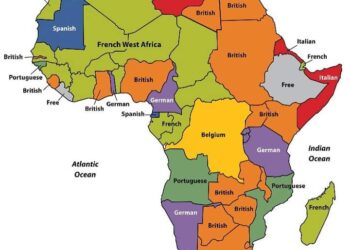While the lockdown appears as a holiday, discussants at a Zoom Webinar argued that the COVID-19 lockdown can be utilised productively by researchers, lecturers and even students, Abdulsalam Mahmud reports.
Introduction
There is so much that can be accomplished or achieved amid the lockdown occasioned by the COVID-19 pandemic in the country. Therefore, researchers and lecturers in Nigerian universities must not see the lockdown as a period for holidaying, discussants at an online seminar have asserted.
They spoke at a research webinar convened by Profe4ssor Oluwasanumi Adepoju, the Director, Research and Innovation at the Gombe State University.
The webinar, which was recently held on the Zoom platform, was themed, “Preventing Academic and Research Shutdown During the COVID-19 Pandemic Lockdown.”
Prof. Adepoju, explained that the webinar was organised with the sole intent of engaging notable researchers, scholars and university administrators across the nation, both in public and private universities concerning how academia can be meaningfully and actively engaged in research and academic activities despite the Covid-19 lockdown.
Wrong assumption
Opening the floodgate of the discussions, Professor Aliyu Usman El-Nafaty, the vice chancellor (VC) of Gombe State University, pointed out that it is ‘totally wrong’ to assume that the closure of public universities in the country as a result of the lockdown directly translates into an opportunity for lecturers and scholars to be holidaying instead of engaging themselves in productive academic and research activities.
“This is an opportunity for our academics to engage deeply in so many areas. If you look at the opportunities that certainly have become available with the outbreak of this COVID-19 pandemic, they are enormous. There are so many online advertisements for research grants. So, it is an opportunity for lecturers and academics to explore by drafting good research proposals, depending on one’s field. There is need for scientists and researchers to utilise the opportunity of this time, and take advantage of it to advance one’s programmes and activities,” he said.
According to him, the lockdown will soon be over and various academic activities will resume. Hence, in order not for schools to rush in their programmes, the lockdown window is an opportunity for lecturers to prepare their lecture notes.
He said, “They should use this time to go over students’ projects and also write good research proposals to get grants. If they do all of these now, they will not end up rushing at the eleventh hour, and become overwhelmed with a lot of responsibilities.
“I hope lecturers will take the opportunity afforded by this COVID-19 lockdown and the Academic Staff Union of Universities (ASUU) strike, and work profitably to their own advantage, and their institutions at large.”
Collaboration, network and flexibility
As for Dr Onyekachi Onwudike-Jumbo, who teaches at the University of Gloucerstershine in the United Kingdom (UK), the lockdown negatively impacted on researches and collaborations in several schools in the UK, as most researchers have been prevented from going to laboratories.
She said those who must go, as a matter of necessity, first get an authorisation or permit before accessing their laboratories.
She added, “But notwithstanding, as an individual who is not working in a group, I have been able to do my research work independently. With the lockdown, one now has ample time to seat down, read and analyse data. “Over here, the impact of the lockdown varies from department to department and from school to school.”
Onwudike-Jumbo explained that the major impact she felt was having to move her lectures online.
“For now, there is no face-to-face lecture delivery. So, one has to prepare lectures to be delivered online for students who may be unable to turn in and participate in the online class discussions at the appropriate time. So, I had to look at the adaptability rate of my students, so that I can tailor my lecture notes to suit them. In terms of research group, I and other members of my research group have been able to come virtually to do all of our research activities.”
Researchers have no borders
The Nigerian-born, but UK-based scholar pointed out that the lockdown has shown clearly that research works have no borders.
According to her, it is important that lecturers consider the aspect of research they intend to pursue, and also which their universities are interested in.
“They should then find people in sister universities, locally and internationally, to collaborate with. They should network and establish lasting relationships. Leveraging on the power of networking is very essential. And as much as one is proposing collaboration, one should know what makes him tick as a person or researcher.
Again, they must be flexible and adaptable. Researchers must be flexible and learn to do research even outside their labs.”
On the part of students, Onwudike-Jumbo said they could gain a lot even as their schools had been shut.
“Those who do not know how to properly reference thesis, can begin to learn how to do that now as they are presently not engaged in school activities. Students should get into research groups of people who can help them learn how to reference and write captivating research proposals, theses or projects. These research communities are very powerful.”
Online learning replication
As Nigeria does not have the capacity to embrace online learning, she said tertiary institutions in the country can learn from other institutions abroad, and replicate same over here.
Onwudike-Jumbo stressed the need for lecturers to create small social groups and share research ideas with their students.
She argued that researchers and students need to be given to continuous professional development.
“We need to start positioning ourselves and making researchers and students have the mindset shift to know that they can actually solve a global problem in a local content.”
Lockdown success story
The Chief Research Officer of the Nigerian Educational Research and Development Council (NERDC), Dr. Chima Jonas Egbujuo, who said he utilised the window provided by the lockdown to ‘brilliantly’ finetune his research work, also disclosed that he and other members of a research group he belongs to were able to write six academic textbooks within the lockdown period.
He added that the three research proposals they developed have already gone through necessary stages of approval.
“We were able to analyse several data. In the course of doing that we were able to identify various areas that can help in developing fresh research ideas,” Dr. Egbujuo said.
No to solo research
Another discussant, Dr Joshua Adeleke, maintained that the lockdown and ASUU strike should serve as an opportunity for academic staff and researchers to accomplish some of their career dreams.
Adeleke, who is the president, Association of Behavioural Analyst and Psychometricians (Ab-Reap) at the International Centre for Educational Evaluation, University of Ibadan, further underscored the significance of the assessment component of teaching.
He advised lecturers to always evaluate the assimilation rate and understanding level of their students after teaching them online.
“They should come up with credible proposals that will appeal to organisations interested in funding researches. It is also good that they build strong network to share ideas and gain beneficial knowledge from their colleagues. More importantly, they must avoid doing solo research,” he said.In her presentation, Professor Hajja Gana Hamza, of the Department of Biochemistry, Gombe State University, said schools and lecturers must find a way to continue teaching and performing other academic activities. He also urged researchers to find ways of going about completing their research works in the face of the lockdown and ASUU industrial action.




